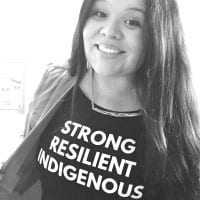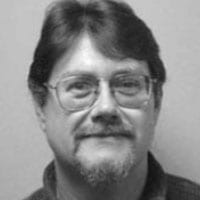
On Dec. 3, SJSU Provost and Senior Vice President of Academic Affairs Vincent Del Casino, Jr. moderated a panel featuring Joely Proudfit from CSU San Marcos (top right), Craig Stone of CSU Long Beach (bottom right), and Cutcha Risling Baldy from Humboldt State (bottom left).
On Thursday, December 3, San José State hosted three leaders of Native and American Indian Studies Programs from across the California State University system: Joely Proudfit from CSU San Marcos, Cutcha Risling Baldy from Humboldt State and Craig Stone of CSU Long Beach. The 90-minute online panel was moderated by Provost and Senior Vice President of Academic Affairs Vincent Del Casino, Jr. More than 100 attendees registered for the webinar.
Del Casino opened the event by reading a land acknowledgment in honor of the Thamien Ohlone and Muwekma Ohlone tribes, recognizing the ethnohistoric tribal territory and offering a message of gratitude to local Native and American Indian residents who have served in the military. After introducing the three panelists, he asked them to help contextualize the history of Native and American Indian Studies while engaging the realities of building a similar program at San José State.
“Prior to beginning a Native or American Indian Studies department, it’s important for universities to work with local tribal leadership,” said Proudfit, professor and department chair of American Indian Studies and director of the California Indian Culture and Sovereignty Center at CSU San Marcos, where she has collaborated with a local tribal advisory council for more than a decade. “The most successful programs have been built alongside tribal communities. They can help determine what it should be named and what its mission should be. What is your campus best situated to do to support tribes in your region?”
“Higher education wasn’t designed for Native American Studies—we had to fight to become a part of this institution,” said Risling Baldy, assistant professor of Native American Studies at Humboldt State University and founder of Native Women’s Collective, a nonprofit organization that supports the continued revitalization of Native American arts and culture. She pointed out that tribes native to the San José region are not federally recognized, which underscores the importance of working together. “When you are building a department, you need to be done studying Native people. It’s now time to learn from and with Native people.”
The conversation tackled both the opportunities and challenges of establishing a new department, both from a curriculum perspective, as well as from the faculty point of view. Stone, who recently retired from CSU Long Beach but remains an active advocate and educator within the community, argued how important it is to include local Native and tribal communities not only as faculty members, but as members of the staff. While many Native and American Indian programs partner with scholars of indigenous cultures from other countries, such as the Maori in New Zealand and aboriginal tribes in Australia, all three panelists agreed that it is critical that universities offering Native and American Indian curriculum connect first with the tribes closest to them.
“We hire people with a sustained interest in supporting Native and American Indian communities,” said Stone. “Who will positively impact the lives of Indian people?”
Del Casino encouraged participants to share questions over the online Q&A, fielding questions about encouraging students of all disciplines to study Native and American Indian studies, as well as how the discipline can help faculty of all areas to decolonize the way they teach. Proudfit shared some additional resources to better clarify the tension between the field and anthropology, English, literature and linguistics, departments that historically have exoticized or alienated Native and American Indian studies and Native scholars.
“It’s important for us to flip the conversation from one of loss and sadness to one of survival, resistance, resurgence and decolonization,” said Risling Baldy. “We need to dismantle, disrupt and remake everything into a better world. It is those big visions of Native people that have made all of this possible. That’s the vision that we need to have.”



